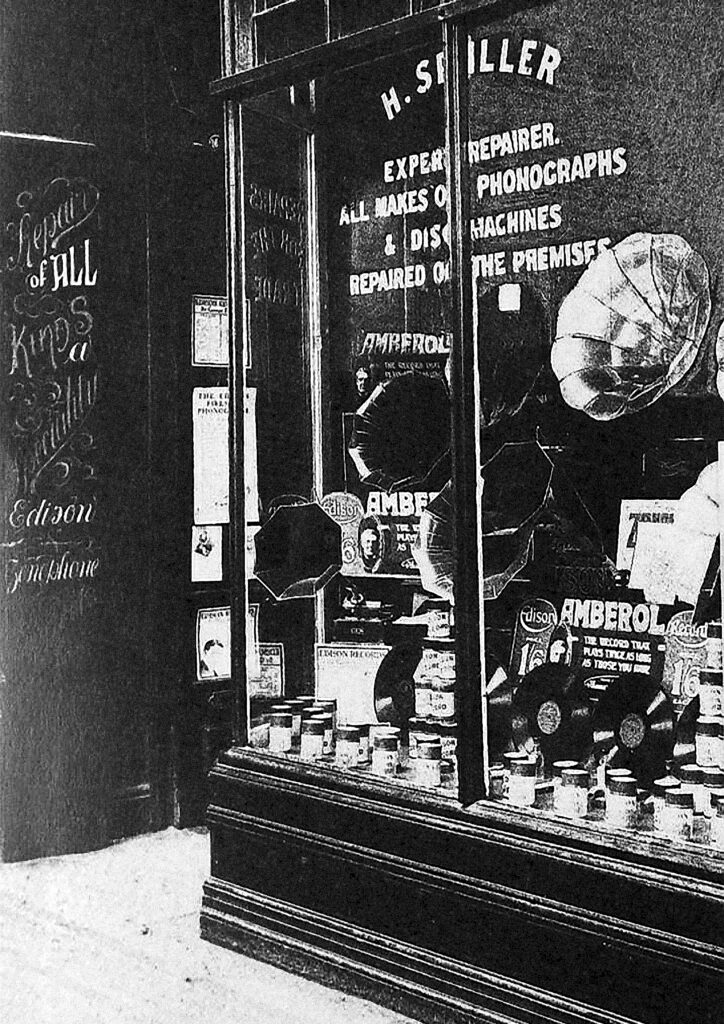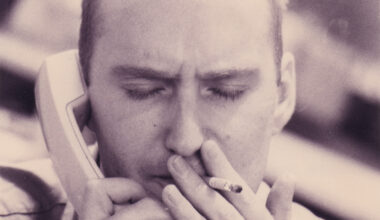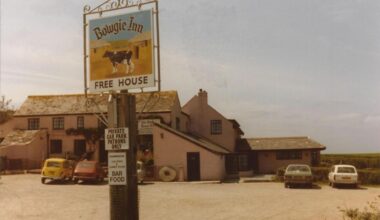When Spillers opened their doors in Cardiff in 1894, who knew that today they’d be the world’s oldest record shop. To mark Record Store Day on 21 April, we salute the rise and fall and rise of the humble record Emporium…

Spillers, a small record emporium based in a quiet Cardiff arcade, is a site of great historic prestige: it’s recognised by ‘The Guinness Book Of Records’ for continually selling recorded music since 1894, which makes it, offically, the World’s Oldest Record Shop. Which, all things considered, is one hell of an achievement. These days the shop is run by the personable Ashli Todd. It’s fair to say he has vinyl in her soul as she literally grew up here; her father ran he place from the early 1970s into the 21st Century. Ashli’s Spillers has a focus on all kinds of rock music – from underground indie bands to Iron Maiden – and lots of contemporary folk, with a strong emphasis on Welsh artists.
Running Spillers is, says Todd, both a pleasure and a struggle: when the supermarkets announced they were about to start stocking vinyl it hurt. Spillers relies on customers who value vinyl and Todd is only too aware how the hypermarts can sell LPs as a loss leader. Concerns noted, Ashli is smart and feisty and, with the shop having survived the collapse of the coal industry and the docks, two World Wars, depressions, recessions, Thatcher and the onset of the digital era, I’m sure her shop will outwit Tesco and the likes too.
Only a decade ago I wouldn’t have made such an optimistic pronouncement what with the great British record shop in what seemed like terminal decline. The end of the public’s love affair with CDs and the onset of downloading saw the big chains crash – Andy’s, Tower, Our Price, Virgin, Music Zone, while industry leader HMV closed dozens of outlets – as well as many independent shops, such venerable traders as Selectadisc, Beanos, Dub Vendor and Mole Jazz, putting up shutters for the final time.
Personally, as an obsessive record collector, I found the whole situation depressing. It felt like the end of an era and that record shops would vanish in a manner akin to video stores. While many of us have fond memories of Tower, Virgin, Andy’s and other record chains, surely no one mourns Blockbuster? What’s more, the best independents are the stuff of legend – Phil Lynott wrote ‘The Rocker’ to celebrate Rock On, a Ladbroke Grove record stall.
It was this sense of loss that pushed me to write ‘Going For A Song: A Chronicle Of The UK Record Shop’. The initial idea was to document the record shops that played the biggest part in shaping the UK’s musical culture. But the more I dug, the more I discovered and, eventually, I found myself writing a secret history, one that begins with the advent of wax cylinder recordings in the 1890s and goes on to cover everything from the rise of HMV (founded at 363 Oxford Street in 1921 – Sir Edward Elgar lead his orchestra in a performance at the grand opening), the maverick jazz-folk-blues shops that helped shape so many notable UK musicians of the 1950s and 60s (think Chris Barber, Van Morrison, Tubby Hayes, Brian Jones, John Mayall), the mod and ska shops which soundtracked a revolution in Jamaican and African American music, the huge role Liverpool’s NEMS played in ensuring The Beatles got a record deal, the pysch shops that entranced Stanley Kubrick so much he would film a scene from ‘A Clockwork Orange’ in one, the rapid rise of Richard Branson’s Virgin chain, how the likes of Rock On, Rough Trade, Beggars Banquet, Small Wonder and Good Vibrations all became important catalysts for punk rock, the increasing role record shops played in immigrant communities while the heavy dub and electronic dance music outlets represented music fans with a taste for intense sonic attack.
Inevitably, I document the crash of a decade or so ago that spelt the end of one record shop era… and, it turns out, the beginning of another. Today across the UK new shops are opening.
Oddly, no one had ever old the UK record shop story before. Perhaps it was because the wise heads realised the huge amount of research involved would take eons and necessitate over 100 interviews. Me, being a fool, failed to consider what would be necessary. It’s been an exhausting task and one that, at the start, felt like I was writing an obituary. Thankfully, it’s turned into a story that will continue – the youths who once disdained CDs and preferred to download illegally have matured into music lovers who value vinyl.
Admittedly, we will never see a magnificent palace of sound like Tower Records’ Piccadilly Circus headquarters (then the largest record shop in Europe) and you are unlikely to find those crazed dance music shops so affectionately lampooned in ‘Human Traffic’ that once appeared to operate from attics and basements in every urban shopping area.
But the new shops that have appeared on our musical landscape are run by music lovers who have not only passion, but imagination. To survive as a record shop in 2018 you need to be pushing forward: Drift Record Shop in Totnes, Devon, hosts a music festival and publishes an engaging music magazine that reaches far beyond its south west location. The Book & Record Bar in West Norwood has its own internet radio station and puts on many fabulous events. Pie And Vinyl in Portsmouth has enjoyed such great success for its pies that they now get invited to cater at concerts and festivals. Lorenzo’s Record Shack in Peckham is run by an Italian who sources superb music, he also runs the Gilles Peterson-endorsed Fly By Night record label so ensuring he has all kinds of esoteric releases.
These and other great emporiums ensure the record shop as community hub continues. It’s down to us now to support them.
Garth Cartwright is the author of ‘Going For A Song: A Chronicle Of The UK Record Shop’, which is published by Flood Gallery Press





